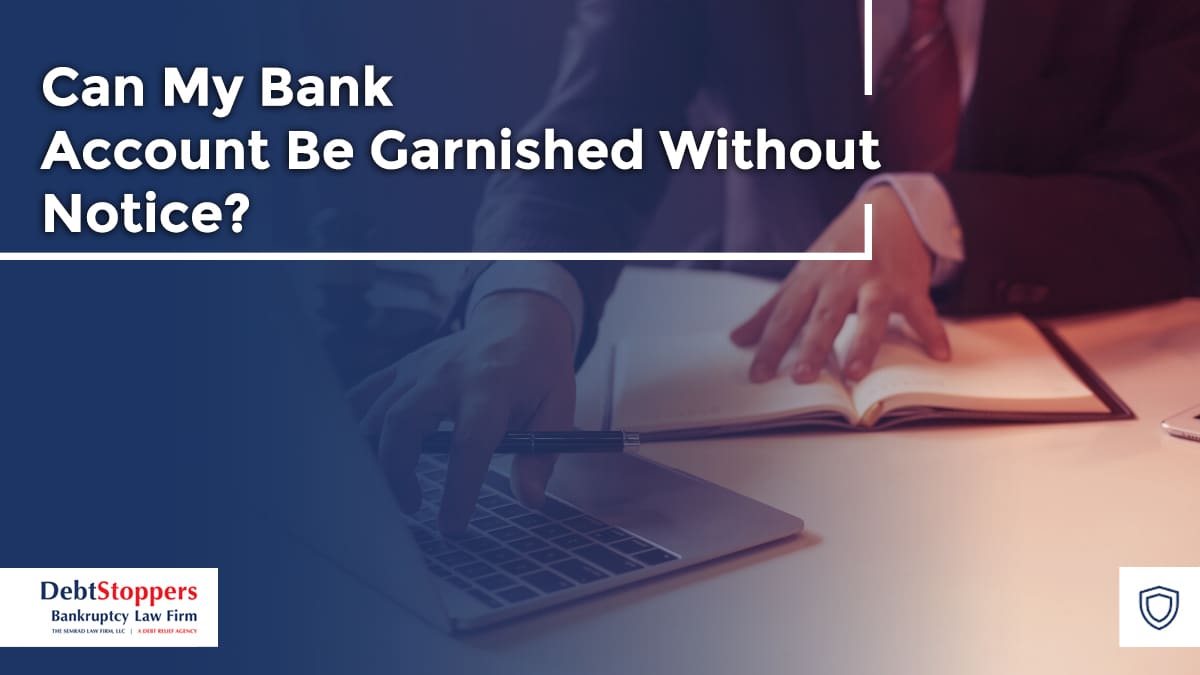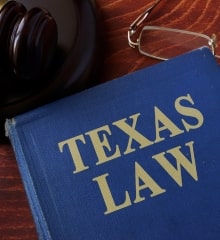Can My Bank Account Be Garnished Without Notice?

In some cases, a creditor can garnish your bank account without providing advance notice. However, if your bank account is garnished, your bank will notify you after the order is received and your account is frozen.
The bank must comply with the court's order before it notifies you, meaning your funds will be inaccessible when you receive the notice. You will receive a notice with details on your right to claim exemptions and contest the freeze, but it is critical to act quickly.
If you fear your bank accounts may be frozen or if they have already been frozen, you should consult with an attorney who can help you understand your options.
How do bank account garnishment laws by state affect your protection?
Bank account garnishment laws vary significantly by state, and those differences can determine how much of your money remains safe if a creditor wins a judgment against you.
Each state has unique rules, so it’s important to understand the federal law and state laws that apply to garnishments.
How to protect my bank account from garnishment before it happens?
The best way to protect your bank account from garnishment is to act before a creditor wins a judgment. Once an order is in place, your bank may be required to freeze funds immediately, leaving you with limited options. By preparing ahead of time, you can minimize the risk of losing access to your money.
One important step is to understand which funds are legally exempt from garnishment. Social Security benefits, veterans’ benefits, certain retirement accounts, and some forms of public assistance are often protected under federal law. Keeping exempt funds in a separate account makes it easier to show that they are off-limits if a creditor tries to seize them.
You can also try to address debts early. Negotiating a repayment plan, consolidating multiple balances into one manageable payment, or working with a professional can stop a lawsuit from moving forward. If your debt load is unmanageable, filing bankruptcy can also prevent garnishment by triggering the automatic stay, which halts most collection efforts.
Simply put, try not to wait until your account is frozen. If you can take some proactive measures, you may be able to prevent access to your essential funds.
What exceptions exist in bank account garnishment laws by state?
It’s important to know that bank account garnishment varies widely from state to state. Many states exempt specific types of income deposited into a bank account, such as unemployment, workers' compensation, state retirement/pension, insurance payments, child or spousal support, and some public assistance programs.
Additionally, some states also offer hardship exemptions that automatically protect funds in addition to the standard percentage or dollar amount. Other states, like Illinois, have wild card exemptions that protect a certain dollar amount of cash or other personal property.
Some states protect bank accounts up to a certain amount. For example, Delaware protects up to $500, and Maryland protects up to $6,000.

How does bank account garnishment in Texas differ from other states?
Texas has some of the strongest consumer protection laws in the nation. In Texas, most bank accounts are protected from garnishment by private creditors. For many Texans, this legal shield makes a critical difference in day-to-day financial stability, even while other collection efforts, such as liens or withholding wages, may still be applicable.
On the other hand, in Illinois creditors must obtain a judgment before they can garnish bank accounts. Additionally, there are sevearl important exemptions that can protect your assets. For example, up to $4,000 of personal property, is exempt under the wildcard exemption.
Can my bank account be garnished without notice for medical debt?
No, your bank account cannot be garnished for medical debt without you being notified. To garnish your bank account, the creditor must first obtain a court order, which involves a legal requirement to notify you.
However, you may not receive advanced notice, but your bank must provide you with a notice of garnishment after the funds are frozen. You will also receive information explaining your right to object to the garnishment or claim any exemptions. It’s important to remember that the burden is on you to claim exemptions or demonstrate that your funds should be protected from garnishment.
How to protect my bank account from garnishment during bankruptcy?
The primary way to protect your bank account from garnishment during bankruptcy is by filing bankruptcy, which triggers an automatic stay that stops most collection actions, including wage garnishment, repossession, and foreclosure.

How does bank account garnishment affect joint accounts or spouses?
Joint bank accounts can make things tricky. In fact, bank account garnishments can negatively impact joint accounts by allowing the creditor to seize all funds, even if only one of the account holders is responsible for the debt.
If that happens, the joint account holder who is not responsible for the debt must then prove which funds are theirs to protect them. In some states, debts incurred by one spouse are the responsibility of both, which basically allows for joint account garnishment. Simply put, if you live in a community property state, keeping your funds in a separate account solely in your name can help protect those funds from your spouse's creditors.





